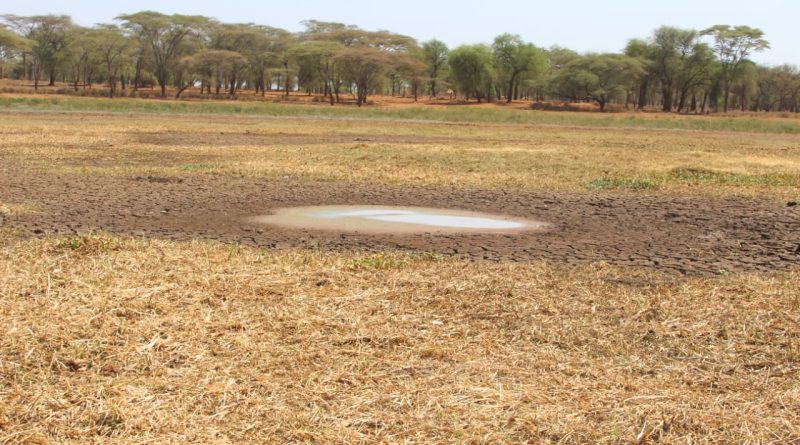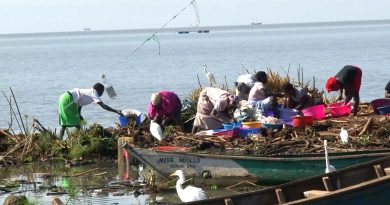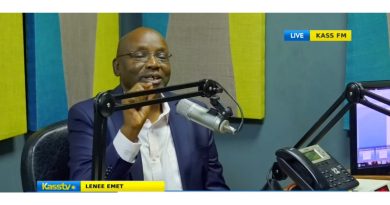Experts call for integrated approach to tackle water scarcity in Kenya
By Chemtai Kirui | phillykirui@gmail.com
Nairobi, Kenya – The global mismanagement of water, a vital resource in sustaining life, remains a pressing challenge despite its critical role. The United Nations says that today, 1.42 billion people – including 450 million children – live in areas of high or extremely high-water vulnerability, (UNICEF, 2021)
Dr. William Ojwang, Freshwater lead at World Wide Fund for Nature Kenya (WWF-Kenya) noted that dealing with water issues requires — “a multisector approach that creates synergy through compliance and social inclusion.”
He said that effective development and management of water resources require collaboration and cooperation across institutional, political, and geographic boundaries.
Dr. Ojwang and other experts stressed the need to shift from a narrow and linear approach to water management towards a more integrated water resources management approach — at a recent media training event, attended by members of the Media for Environment, Science, Health and Agriculture in Kenya (MESHA).

Managing available surface and groundwater supplies in the country is becoming increasingly challenging due to factors such as population growth, encroachment of riparian areas, climate change, effluent and solid waste.
“These threats have resulted in water resource scarcity, flooding, waterlogging, and environmental pollution.” said Caroline Njiru, the WWF-Kenya program coordinator.
Njiru cited Naivasha landscape as a case study, highlighting threats such as unsustainable farming, deforestation, climate change, and insufficient environmental and social precautions in significant infrastructure projects.
The economic and ecological demands on water are also competing, further exacerbating the situation.

Malesi Shivaji, CEO of the Kenya Water and Sanitation CSOs Network (KEWASNET), underlined the political concerns, and called for urgent action to address the issue of political appointments in water institutions and to amend the Water Act 2016.
“There is a need to relook at the available 18 water institutions in the country, this is because the country faces serious challenges in managing water resources, including a decrease in clean water availability and pollution concerns,” he said.
Shivaji emphasized the need to establish clear criteria for appointing board members and examine “bloating institutions” as a means to improve their effectiveness.
Experts suggest that Kenya has one of the best water policies on paper, and the country needs to act to fully implement those strategies.
They stressed the urgency of managing water scarcity in light of climate change.

“Rather than simply investing in infrastructure, the focus should be on enhancing water production and proper water management to fulfill the country’s Sustainable Development Goals (SDGs) obligations,” Dr. Ojwang said.
According to the United Nations General Assembly (UNGA) — all nations must implement IWRM at all levels to achieve sustainable water resources development and management by 2030, as per SDG 6.5.
What Is Integrated water resources management (IWRM)?
“Integrated water resources management (IWRM) is a process that promotes the coordinated development and management of water, land and related resources to maximize economic and social welfare in an equitable manner without compromising the sustainability of vital ecosystems,” states the United Nations Environment Progamme (UNEP).
This approach involves stakeholder engagement, data collection and analysis, policy formulation, and capacity building, among other activities.
“IWRM is a challenge to conventional practices and attitudes, requiring that water resources be managed holistically for the benefit of all,” said Professor Japheth Onyando, a Leading Expert in Integrated Water Resource Management.
He listed Kenya as a chronic water-scarce region, with declining per capita freshwater availability, exacerbated by population increase and attitude issues.

Onyando, a Professor of Engineering at Egerton University, stressed the need to prevent soil erosion from construction sites to protect the water bodies, adding that adopting approaches that take care of these related aspects, will help protect the environment and achieve sustainability.
He noted that IWRM requires strong political will for successful implementation.
The IWRM approach is becoming increasingly necessary as water scarcity and conflicts related to water scarcity, especially by people living upstream and those living downstream continue to increase.
While experts at the national, county, and technical levels emphasize coping strategies for IWRM, the responses from different levels of society should not be overlooked.
Stakeholder societies respond to water pollution and shortages differently, both at the individual and community levels. In different basins, they utilize associations such as Water Resources Users Associations (WRUAs) and Citizen-led River health assessments (CLRHA).
WWF-Kenya, through a water awareness campaign known as Journey of water aims to create awareness about increasing water risks and water blindness in the country.
River Malewa walk-campaign, held in 2022, demonstrated how water pollution challenges affect dependent communities and businesses — and highlighted how Integrated Water Resource Management can improve relationships between communities living upstream and downstream.
“WWF-Kenya has initiated various other programs such as the Lake Naivasha Basin afforestation project, and Vasha Green to improve livelihoods and restore the ecosystem using inclusive natural resources restoration.” Njiru said.
At the recent historic Water Conference, the first freshwater conference in 46 years, United Nations Secretary-General António Guterres said, “Governments must develop and implement plans that ensure equitable water access for all people while conserving this precious resource.”

To ensure the effectiveness and sustainability of IWRM, experts agree that communities must participate in local practices and gain empowerment from them.
Daniel Aghan, the CEO of MESHA, emphasized the critical role that journalists play in informing and educating communities.
He spoke alongside WWF-Kenya, stressing the need for journalists to have unfettered access to experts, to ensure accurate and comprehensive reporting.
Aghan called for a reevaluation of approaches to water use, stating “We need to reconsider where water goes when it rains.”




